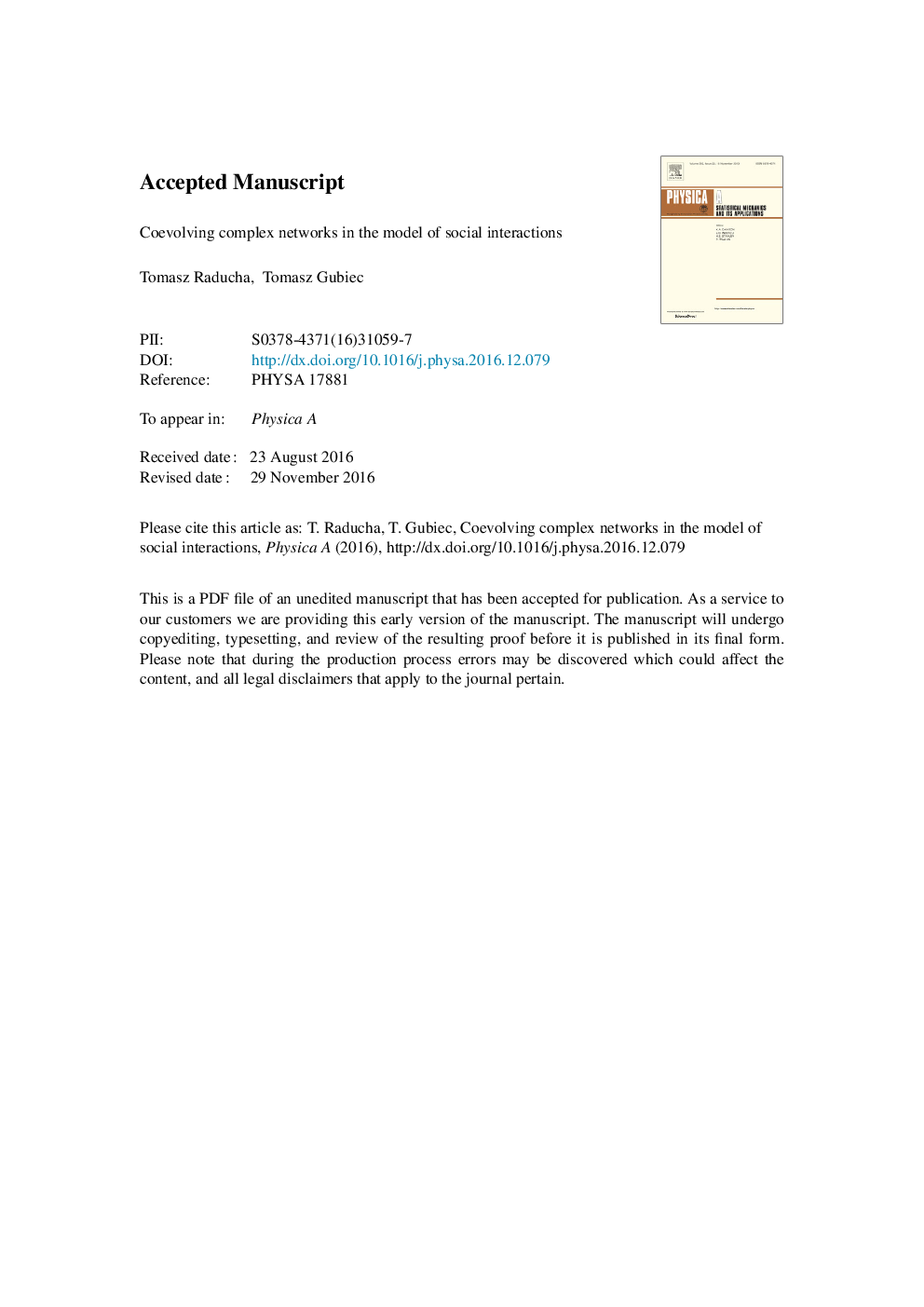| Article ID | Journal | Published Year | Pages | File Type |
|---|---|---|---|---|
| 5102946 | Physica A: Statistical Mechanics and its Applications | 2017 | 18 Pages |
Abstract
We analyze Axelrod's model of social interactions on coevolving complex networks. We introduce four extensions with different mechanisms of edge rewiring. The models are intended to catch two kinds of interactions-preferential attachment, which can be observed in scientists or actors collaborations, and local rewiring, which can be observed in friendship formation in everyday relations. Numerical simulations show that proposed dynamics can lead to the power-law distribution of nodes' degree and high value of the clustering coefficient, while still retaining the small-world effect in three models. All models are characterized by two phase transitions of a different nature. In case of local rewiring we obtain order-disorder discontinuous phase transition even in the thermodynamic limit, while in case of long-distance switching discontinuity disappears in the thermodynamic limit, leaving one continuous phase transition. In addition, we discover a new and universal characteristic of the second transition point-an abrupt increase of the clustering coefficient, due to formation of many small complete subgraphs inside the network.
Related Topics
Physical Sciences and Engineering
Mathematics
Mathematical Physics
Authors
Tomasz Raducha, Tomasz Gubiec,
